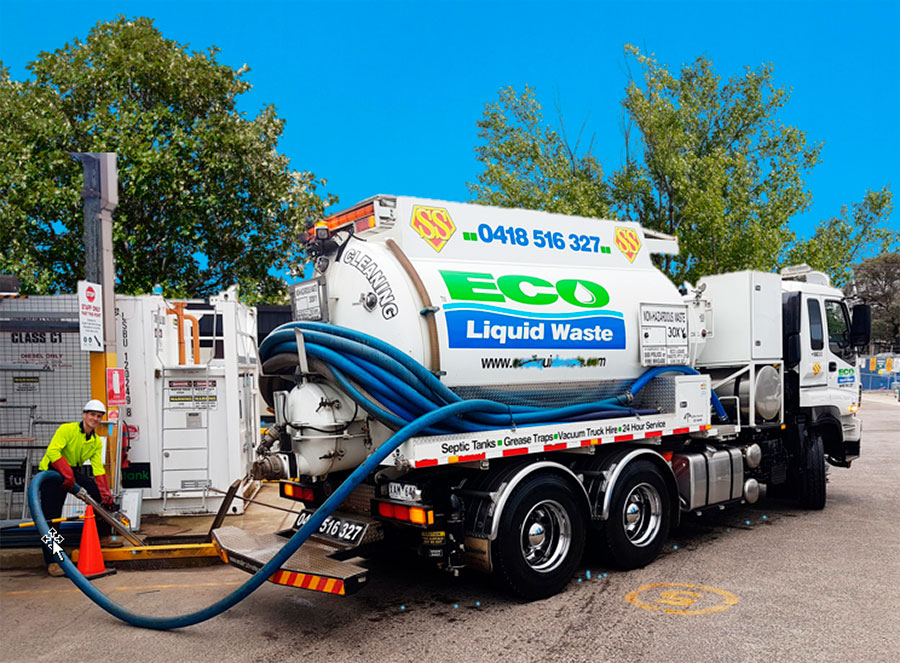The smart Trick of Reclaim Waste That Nobody is Talking About
The smart Trick of Reclaim Waste That Nobody is Talking About
Blog Article
Reclaim Waste for Dummies
Table of ContentsSome Of Reclaim WasteExcitement About Reclaim WasteSome Known Details About Reclaim Waste The Buzz on Reclaim Waste4 Simple Techniques For Reclaim Waste
Discover the types, incidents, and kinds of fluid waste. Domestic sewer waste refers to the waste and items from a residential septic system. This kind of waste is created by humans in houses, schools, and other buildings. This only includes sewage-disposal tanks that have a drain field. The proper administration and disposal of domestic sewage waste require liquid waste to be transferred to a sewage treatment plant where the proper techniques and devices are applied to purify and take care of waste.
Commercial waste typically includes prospective risks, such as flammable products or a blend of fluid and solid waste products, and calls for an advanced and detailed disposal procedure. The disposal of industrial waste usually involves the purification of waste prior to transportation to make sure safe and correct disposal. Industrial waste is developed from byproducts and runoff of industrial procedures and production.
This sort of waste can not utilize the exact same sewage management transportation or procedures as septic or commercial fluids. The hazardous waste administration procedure needs the evaluation and testing of liquid waste before it goes through the disposal process (liquid waste removal). Runoff waste is the fluid waste that comes from drainage and excess stormwater in very populated areas or cities
Overflow waste can cause contamination and flooding if not handled effectively. Making sure correct waste monitoring can protect against disasters and lower ecological harm.
How Reclaim Waste can Save You Time, Stress, and Money.
Call PROS Solutions today to find out about our waste administration and disposal solutions and the appropriate ways to care for the fluid waste you produce.
(https://businesslistingplus.com/profile/reclaimwaste1/)This so-called 'wastewater' is not only a crucial resource however, after therapy, will certainly be released to our land, waterways or the sea. Utilized water from commodes, showers, bathrooms, kitchen sinks, washings and commercial processes is understood as wastewater.

water used to cool equipment or tidy plant and tools). Stormwater, a kind of wastewater, is overflow that flows from agricultural and city areas such as roofs, parks, yards, roads, paths and rain gutters into stormwater drains, after rain. Stormwater flows neglected straight to neighborhood creeks or rivers, at some point getting to the ocean.
More About Reclaim Waste
In Queensland, a lot of wastewater is treated at sewer therapy plants. Wastewater is delivered from domestic or commercial websites via a system of drains and pump stations, called sewerage reticulation, to a sewage treatment plant. City governments construct, preserve and run most sewage treatment plants. Operators are licensed under the Environmental Security Act 1994 to release cured wastewater at an acceptable environmental criterion into rivers.
The Department of Natural Resources suggests city governments about handling, operating and keeping sewage systems and treatment plants. In unsewered locations, city governments might require owners to mount specific or home sewer therapy systems to treat domestic wastewater from commodes, kitchen areas, bathrooms and washings. The Division of Natural Resources authorizes the use of household systems when they are shown to be effective.
A lot of stormwater gets no therapy. In some new class, therapy of some stormwater to eliminate trash, sand and crushed rock has actually begun making use of gross contaminant catches. Wastewater treatment takes place in 4 stages: Eliminates solid issue. Larger solids, such as plastics and other items mistakenly discharged to sewage systems, are gotten rid of when wastewater is travelled through displays.
Utilizes tiny living organisms recognizes as micro-organisms to break down and remove staying liquified wastes and great particles. Micro-organisms and wastes are included in the sludge.
9 Easy Facts About Reclaim Waste Described
Nutrient elimination is not offered in any way sewage treatment plants due to the fact that it needs pricey specialized devices. It is coming to be much more typical original site in Queensland. Clear fluid effluent created after treatment might still contain disease-causing micro-organisms. If this effluent is released right into rivers such as rivers or the sea, the micro-organisms will at some point pass away out.

This typically suggests wastewater needs to be dealt with or pollutants eliminated prior to it can be discharged to rivers. Most wastewater moves right into the sewerage system. Under the Act, city governments provide authorizations and permits for ecologically relevant tasks (ERAs) including wastewater launches that might have a local effect. The division carries out approvals and licences to Ages including wastewater launches that could have a local or statewide influence.
The 7-Minute Rule for Reclaim Waste
Surveillance supplies factual info regarding water high quality and can validate that licence conditions are being fulfilled. The information gotten via monitoring offers the basis for making water high quality decisions.
Report this page